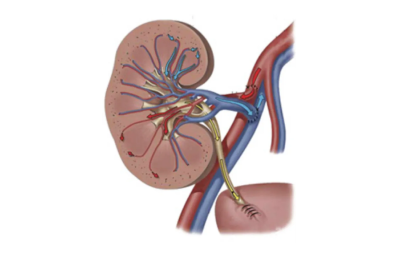
亲属肾移植科普
亲属肾移植是一种治疗终末期肾病的有效方法。术前医生会对供体和受体进行全面的评估,以确保手术的安全性。手术过程中,医生会将供体的肾脏移植到受体的体内,并进行血管、输尿管等的吻合。术后受体需要长期服用免疫抑制剂,防止发生排斥反应。
-
Is it safe to donate a kidney in a living relative kidney transplant?
In this popular science article, we mainly quote a review published in the journal Nephrology, Transplantation and Dialysis, which is published by Oxford University Press and is one of the authoritative journals in the field of kidney transplantation.
-
The future of related kidney transplantation: exploration and prospect
Although kidney transplantation is not a life-saving straw for patients with uremia, it does have obvious advantages in improving their quality of life. The shortage of kidney donors, coupled with the advantages of related kidney transplantation, has attracted much attention. In the future, with the development of technology, related kidney transplantation will develop in a…
-
If a family member donates a kidney to me, will it have a big impact on his/her life?
When it comes to kidney transplantation through relative donation, one of the most pressing questions people are concerned about is “After donating a kidney, the donor only has one kidney left. Will this affect his/her future life?”
-
Relative Donor Kidney Transplantation: When Family Members Become Superheroes
A relative’s kidney transplant is like a family superhero with many exciting superpowers. Although there are some little monsters to face, these challenges can be overcome with the right guidance and support.
-
Embracing a new life: Exploring the miracle of recovery after a relative’s kidney transplant
Kidney transplants between relatives have a relatively high success rate due to the high genetic similarity and relatively low rejection reaction. However, the recovery period after the operation is a long and challenging process for the recipient.
-
Regarding the precautions after kidney transplantation, please check
Kidney transplants between relatives have a higher success rate and better long-term prognosis because relatives have a more similar genetic background, which reduces the risk of rejection and complications. However, kidney transplants between relatives also have the risk of serious complications such as rejection. Therefore, after kidney transplantation, you must listen to your doctor and…
-
Related Donor Nephrectomy—How Can We Protect the Donor?
Hello, everyone! Relative donor kidney transplantation, as a special and important kidney transplantation method, has brought hope of life to countless kidney patients. However, behind this hope, we should pay more attention …
-
For kidney transplantation from relatives, how close does one have to be to become the recipient?
Relative kidney transplantation must undergo strict ethical approval before implementation. According to the latest “Regulations on Human Organ Donation and Transplantation” in my country, living organ donors must be at least 18 years old, and recipients are limited to the donor’s spouse, direct blood relatives or collateral blood relatives within three generations.
-
Among the following relationships, which one can undergo living relative-donor kidney transplantation?
According to the 2024 edition of my country’s “Regulations on Human Organ Transplantation and Donation”, it is clearly stipulated that the recipients of living organs are limited to the spouse, direct blood relatives or collateral blood relatives within three generations of the living organ donor.
-
Kidney, it’s better to be close to yours
Due to the blood relationship between relatives, the tissue matching between the donor kidney and the recipient is often better, so the risk of rejection is lower; Since the living donor kidney is used, the cold and warm ischemia time of the transplanted kidney is shorter, the ischemia-reperfusion injury is mild, and the overall quality…










